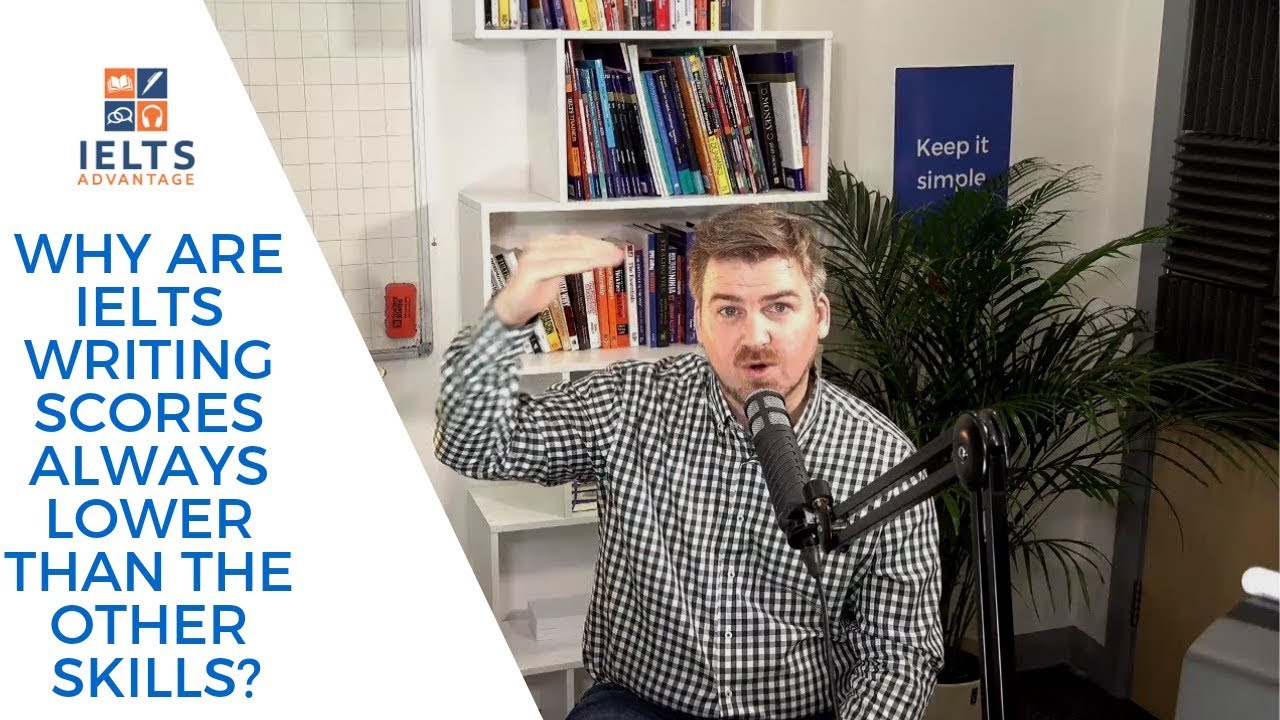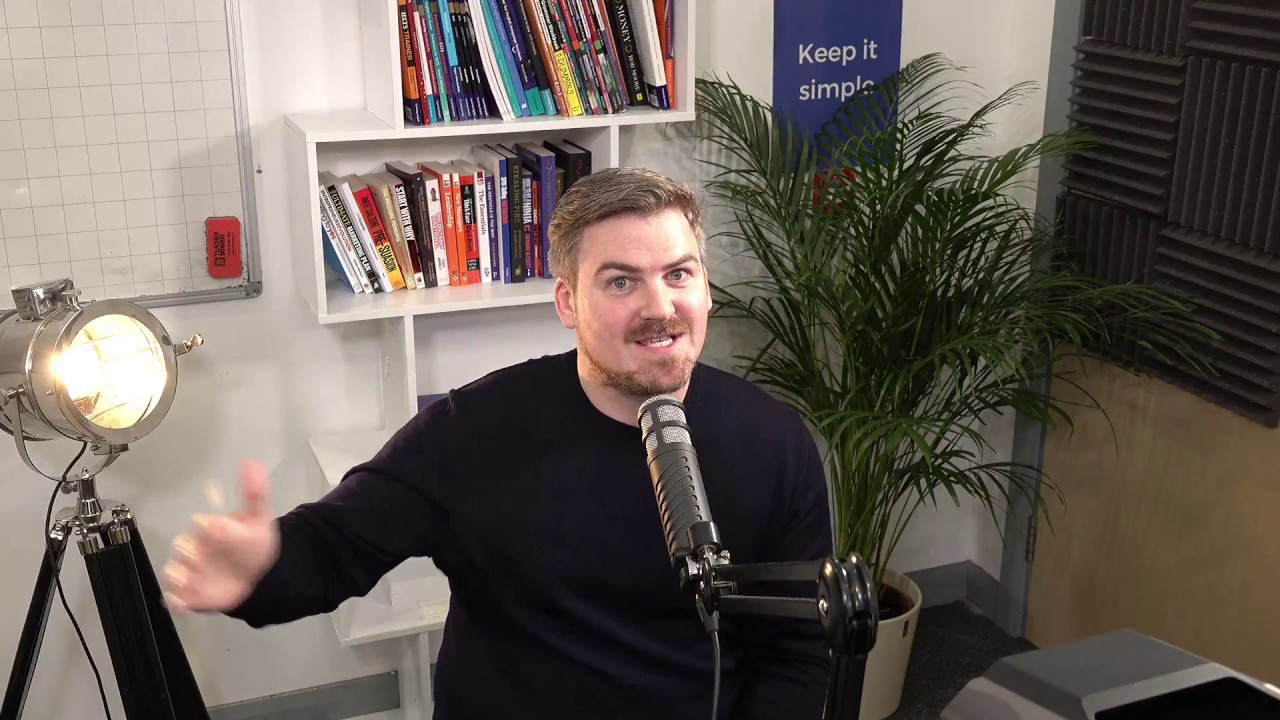IELTS VIP Podcast Episode 15: How Planning Can Help You Get the IELTS Score You Need
Summary
TLDRIn this episode of the IELTS VIP podcast, the host emphasizes the critical role of planning in achieving high scores on IELTS writing tasks. Addressing common concerns like time management, staying within word limits, and fully developing ideas, the host shares strategies and analogies to illustrate the benefits of planning. The podcast also discusses the importance of structure in writing and how it can guide students to a more organized and effective approach, ultimately leading to improved performance on the exam.
Takeaways
- 🎙️ The podcast is part of the IELTS VIP series, focusing on providing in-depth solutions to IELTS writing tasks.
- 📅 The host plans to release a podcast weekly for the next six months, ensuring consistent content for listeners.
- 👥 The VIP group offers personalized assistance to a limited number of students, addressing their specific needs and questions.
- ✍️ The podcast addresses common issues in IELTS writing, such as finishing on time, staying within word limits, and developing ideas.
- 📈 Success stories from students who achieved a score of 7 or above often attribute their success to effective planning.
- 🗂️ Planning is emphasized as an investment rather than a waste of time, with analogies provided to illustrate its importance.
- 🏆 The podcast offers step-by-step structures for various writing tasks, which help students plan their essays systematically.
- ⏱️ The average planning time recommended by successful students is about 7-8 minutes, leaving ample time for writing and editing.
- 📝 The planning process involves thinking about the question, generating ideas, and creating a skeleton structure before writing.
- 💡 The podcast suggests that planning helps maintain focus, prevents changes in direction during writing, and ensures a structured essay.
Q & A
What is the main focus of the IELTS VIP podcast?
-The main focus of the IELTS VIP podcast is to provide in-depth solutions and advice for IELTS writing tasks, particularly addressing common issues faced by students in Task 1 and Task 2.
Why did there seem to be a break in the podcast episodes?
-There was a break in the podcast episodes because the host was on holiday before Christmas, and then there was the Christmas holiday period.
What is the frequency of the IELTS VIP podcast episodes going forward?
-The host plans to release at least one podcast episode every single week until they go on another holiday, which won't be for at least another six months.
What is the VIP group mentioned in the podcast?
-The VIP group is an exclusive group within IELTS Advantage where they work very closely with a small number of students, providing personalized help and support.
How does the podcast address students' concerns?
-The podcast addresses students' concerns by asking them for their specific questions and worries, and then creating a podcast episode that goes in-depth into those issues.
What is the most common advice given by successful IELTS students according to the podcast?
-The most common advice given by successful IELTS students is the importance of planning, which they say significantly changed their performance.
Why is planning emphasized as a key strategy in the podcast?
-Planning is emphasized because it helps solve multiple problems such as finishing on time, staying within word limits, using the right number of ideas per paragraph, fully developing ideas, and staying focused during the writing task.
What are the analogies used in the podcast to illustrate the importance of planning?
-The podcast uses analogies such as going on holiday without planning, millionaires budgeting their finances, and daily planning for productivity to illustrate the importance of planning in IELTS writing.
What is the 'skeleton structure' mentioned in the podcast for IELTS writing?
-The 'skeleton structure' refers to a pre-planned outline of an essay that includes the introduction, main ideas, explanations, examples, and conclusion, which serves as a roadmap for writing the essay.
How much time should be allocated for planning according to the podcast?
-The podcast suggests that on average, successful students plan for about 7-8 minutes before starting to write their IELTS essays.
What is the host's advice on how to handle the IELTS writing test effectively?
-The host advises to follow a step-by-step process that includes thinking, planning, writing, and editing, and to use a structured approach to ensure a systematic and focused writing strategy.
Outlines

This section is available to paid users only. Please upgrade to access this part.
Upgrade NowMindmap

This section is available to paid users only. Please upgrade to access this part.
Upgrade NowKeywords

This section is available to paid users only. Please upgrade to access this part.
Upgrade NowHighlights

This section is available to paid users only. Please upgrade to access this part.
Upgrade NowTranscripts

This section is available to paid users only. Please upgrade to access this part.
Upgrade NowBrowse More Related Video

IELTS VIP Podcast: Why Are IELTS Writing Scores Always Lower Than The Other Skills?

IELTS VIP Podcast Episode 10: Should I Get my IELTS Test Remarked?

IELTS VIP Podcast Episode 14: How to Develop Main Ideas in IELTS Writing

Coherence and Cohesion – What Does it REALLY Mean?

Love Your Mom on IELTS - IELTS Energy Podcast 1387

Episode 21: The Differences Between a Band 6 IELTS Essay and a Band 9 IELTS Essay
5.0 / 5 (0 votes)